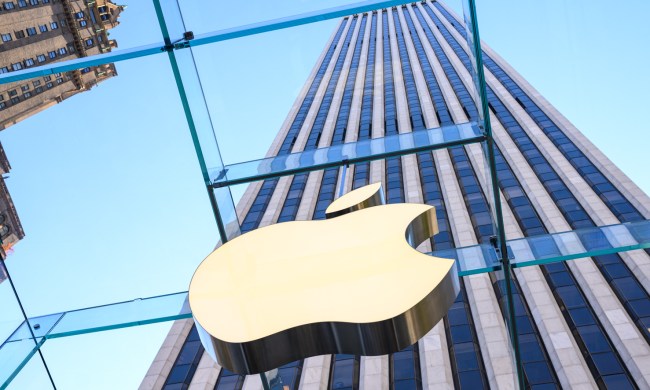
Apple’s policy of secrecy has often led to criticism. Apple once sued and eventually killed one of its biggest fan sites, Think Secret, for refusing to name the source of their leaks. Last year this secrecy came under sharp criticism when an employee working at parts supplier Foxconn International was beaten and died under questionable circumstances that were ruled a suicide, after losing a fourth generation iPhone prototype.
Since it has been revealed that Apple has an army of secret police that monitor its employees and report potential leakers, which are then reportedly brought in for interrogation. However, that may be mild to the virtual fortress-like security that Apple maintains in China.
In China, Apple primarily prototypes and assembles its electronics inside walled cities. Those entering or exiting are searched and have to go through fingerprint scanners. Inside the city are traditional businesses — stores, restaurants, and banks. One such city is the South China city of Longhua, run by Foxconn.
A worker inside the city comments, “Security is tight everywhere inside the factories. They use metal detectors and search us. If you have any metal objects on you when you leave, they just call the police.”
Company officials refused to comment on the remarks. However, a Chinese industry insider anonymously stated that it was well known that Apple went to “extreme lengths” to preserve secrecy.
Much like Apple reportedly gives U.S. employees fake information to ferret out leaks, sources say that Apple gives some manufacturers prototypes to make sure they’re staying in the circle of trust. If the units leak, Apple will punish the suppliers, often times terminating contracts.
A senior official at Hon Hai Precision Industry, the Taiwanese conglomerate that owns Foxconn, comments, “This ensures that the only people who have all the secrets to any Apple product is Apple itself. Other tech companies will also look for their own sources of components to compare, but none of them do as many things in-house as Apple does.”
The workers on assembly lines don’t even know what they’re assembling in Apple’s case. Describes one supplier, “The typical production line worker will not see the product until the very last minute when actual production takes place. It’s all concentrated in the hands of a few product development teams.”
During a recent investigative report a correspondent traveling to Foxconn’s Guanlan plant was dragged away by two guards at the plant and beaten when he tried to escape. The police officer who arrived on scene was unsympathetic, stating, “You’re free to do what you want. But this is Foxconn and they have a special status here. Please understand.”
Foxconn has since apologized for the assault.
How far would Apple go to preserve that security? The recent suicide of the Foxconn worker, which some claim was a murder, certainly raises that question. However, for Apple secrecy, quite unlike anything else seen in the industry, is a way of life. Describes a former U.S. Apple employee who worked at Apple’s headquarters in Cupertino, Calif., “I didn’t even talk about [the Apple work] with my wife. It’s a culture of silence and it’s just accepted. You get used to not talking about your work, it becomes normal because everybody is doing the same thing.”



